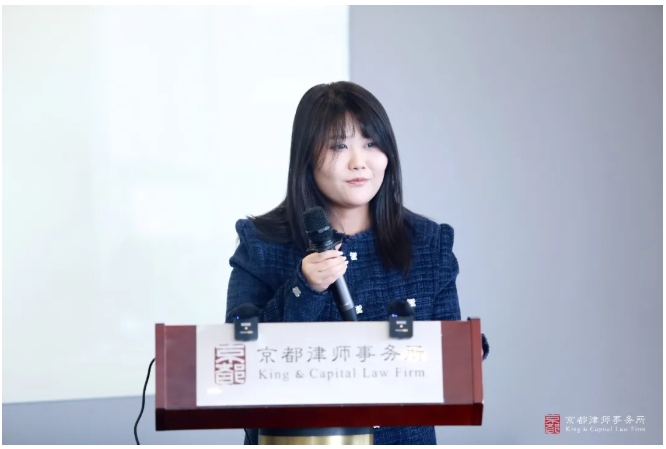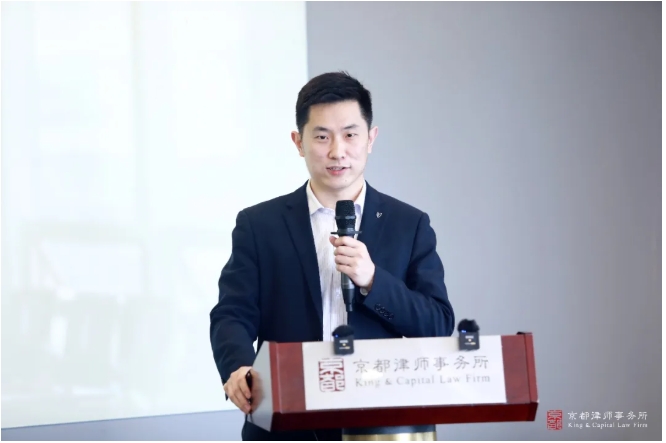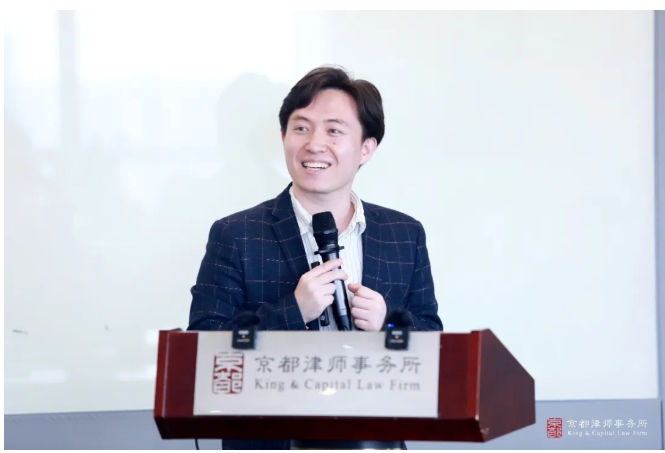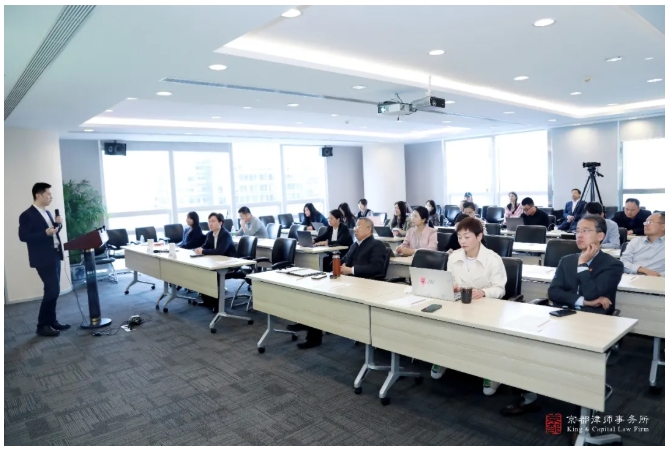On March 27, 2025, King&Capital Law Firm's Criminal Department successfully held the twelfth issue of the seminar series of “Criminal Case Thinking and Debating”. The theme of this seminar is “DeepSeek Practical Lessons for Lawyers”.
The event invited Mr. Feng Wang, a lawyer from the Criminal Department of Beijing King&Capital Law Firm, and Mr. Yao KuiXu, Director of the Client Director of AI Business Segment of WiseConnect, to share the practical experience and future outlook of AI-enabled lawyers from the perspectives of legal practice and technological application respectively. The event took the form of combining offline lectures and online live broadcasting, with several lawyers attending the meeting and more than 3,000 people listening online.
AI and legal thinking collision: the efficiency revolution of the lawyer industry

At the beginning of the event, the moderator, Ms. Wang Qingnan, pointed out that AI technology has infiltrated many scenarios of the daily work of lawyers, such as contract retrieval, filing review, and risk assessment. She emphasized that lawyers need to embrace technological innovation with an open attitude, while maintaining deep cultivation of professional ability to realize the “two-way empowerment of legal thinking and technological tools”.
Feng Wang: AI reshapes the workflow of lawyers

Feng Wang combined with her own practice, with humor and pragmatic style, detailed analysis of AI in the daily work of lawyers in the five major application scenarios:
1. Efficient Text Processing
AI can quickly transform the lengthy transcripts into concise and standardized written documents. Feng lawyers cited an example, a 6,000-word transcript, AI only a dozen seconds to generate a streamlined version of 3,000 words, and automatically correct typos, summarize the core content, the efficiency far exceeds the manual proofreading (saving about 2-3 hours).
2.Intelligent case search
AI can quickly screen related cases and provide analysis ideas according to the set conditions, but its limitation is that it can't be directly connected to the adjudication documents network, and the accuracy of some information needs to be manually reviewed. Nevertheless, AI still provides lawyers with efficient search direction reference.
3.Efficient Legal Analysis
For simple legal issues or cases, AI can quickly conduct legal analysis, although the conclusion may not be mature enough, but can provide enlightening direction. For large quantities of data or materials, AI can quickly locate key evidence, significantly reducing the work time.
4.Standardized Document Generation
After entering the basic information of the case, AI can automatically generate the first draft of the legal document, and the lawyer only needs to review and adjust the details, which significantly improves the writing efficiency.
5.Legal content creation
AI can generate a variety of styles, easy to understand legal articles, help lawyers and law firms to expand the brand impact.
Feng lawyer said frankly, AI is not “a key to laziness” tool, its practical application is inseparable from the lawyer's professional judgment, a good lawyer should not become a tool, AI era, the unique value of lawyers is still irreplaceable, even in the AI brought more and more complicated information in the era of professional and accurate advice more and more valuable. Mr. Fengwang's speech is very interesting.
See “King&Capital Law Review | The Last Mile of Justice: AI May Never Replace Lawyers” for more details on Feng Wang's sharing.
Director Yao Kuixu: The Future of the Legal Industry from a Technological Perspective

Yao Kuixu, Account Director of AI Business Segment of WiseHarmony, systematically elaborated the landing scenarios and development trends of AI in the legal field from a technological point of view:
Practical Tips of AI Tools
Director Yao emphasized that the efficient use of AI needs to master the skills of clarifying the target and providing background information. For example, through the networking search and attachment upload function, lawyers can quickly call up historical cases and legal opinions in the knowledge base.
Three core application scenarios
Knowledge management: build individual or team knowledge base to realize rapid reuse of experience;
Batch case processing: AI can batch generate pre-litigation strategies, evidence lists and client communication tactics;
Content marketing: one-click generation of legal articles and short video scripts to enhance the efficiency of brand communication.
Future Trend Prediction
Judicial System AI: For homogenized cases, the court may introduce AI to assist in adjudication;
Deep Collaboration Mode: Customers and the judicial system will cooperate with AI in the long run to optimize service efficiency;
Lawyer Ability Upgrade: The AI era requires lawyers to master technical tools and strengthen the ability of “human-machine collaboration”.
Director Yao pointed out that AI will promote the legal industry from “experience-driven” to “data-driven”, but the core competitiveness of lawyers still lies in professional judgment and in-depth thinking.
Moderator's summary: AI is a tool, not a replacement
At the end of the event, Mr. Wang Qingnan concluded that AI has brought about a revolution in the efficiency of the legal industry, but also put forward higher requirements. Lawyers need to take the initiative to learn technical tools to optimize the workflow; at the same time, they should stick to their professional kernel and play an irreplaceable value in case analysis and strategy development. “AI can't replace lawyers, but lawyers who make good use of AI will surely stand out.”
Conclusion: the dual track of intelligence and specialization

The deep integration of AI and law is opening a new chapter of intelligence and specialization in the lawyer industry. In the future, technology tools will take on more fundamental work, while lawyers focus on strategy design and value creation for complex cases. This change not only improves the efficiency and quality of legal services, but also injects new momentum into the construction of a society based on the rule of law. As expected by the event, the legal industry empowered by AI will definitely contribute more powerful technological power for social justice.
Follow-up activities:
The “Criminal Defense Talk” series of activities is a column specially set up by the Criminal Department of King&Capital Law Firm to strengthen internal communication, improve the practical ability of lawyers in criminal defense, and enhance the influence of the firm's criminal defense brand. The column aims to promote the King&Capital head office and branch offices, the firm and outside the counterparts, experts and scholars, the exchange and cooperation between the departments within the firm. The “Criminal Defense Talk” activity will be held once a month, and the next activity will continue to invite professionals to share and discuss.
Translated with DeepL.com (free version)



